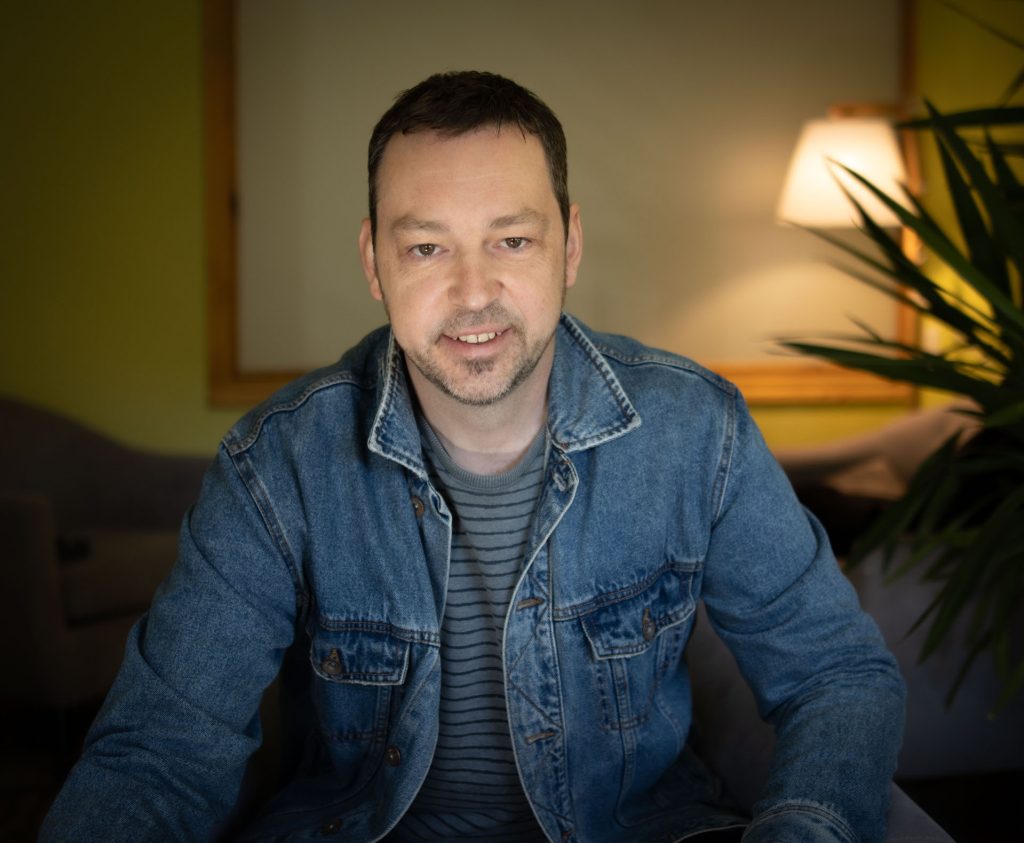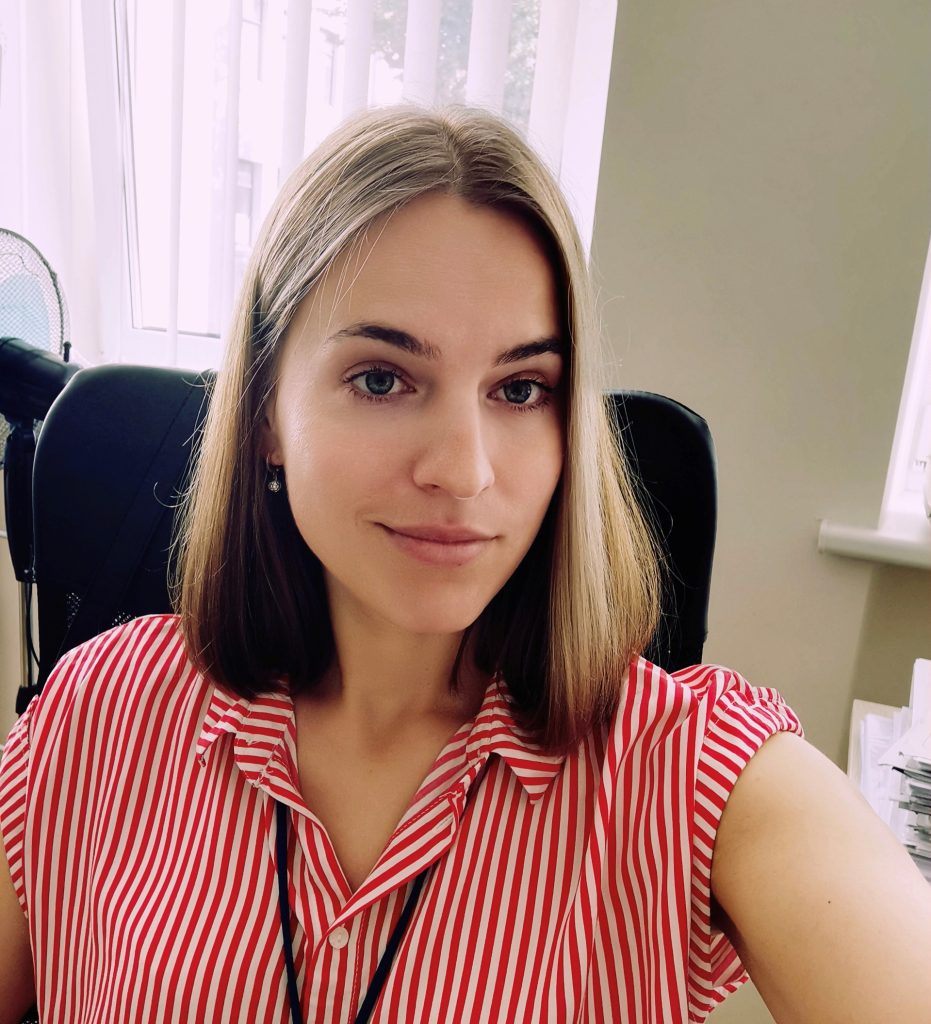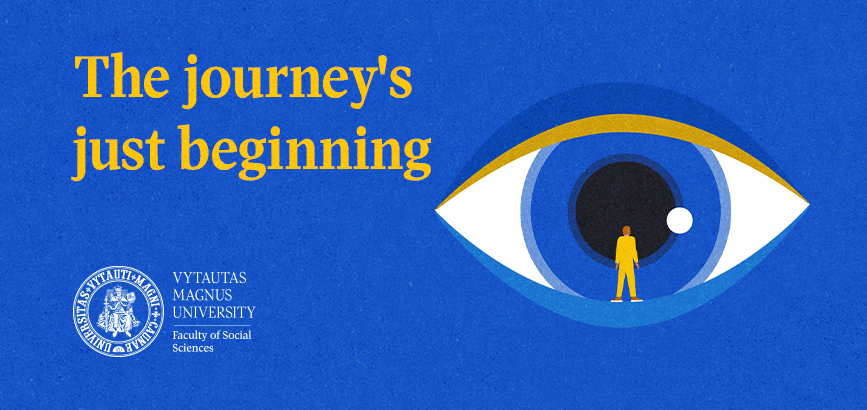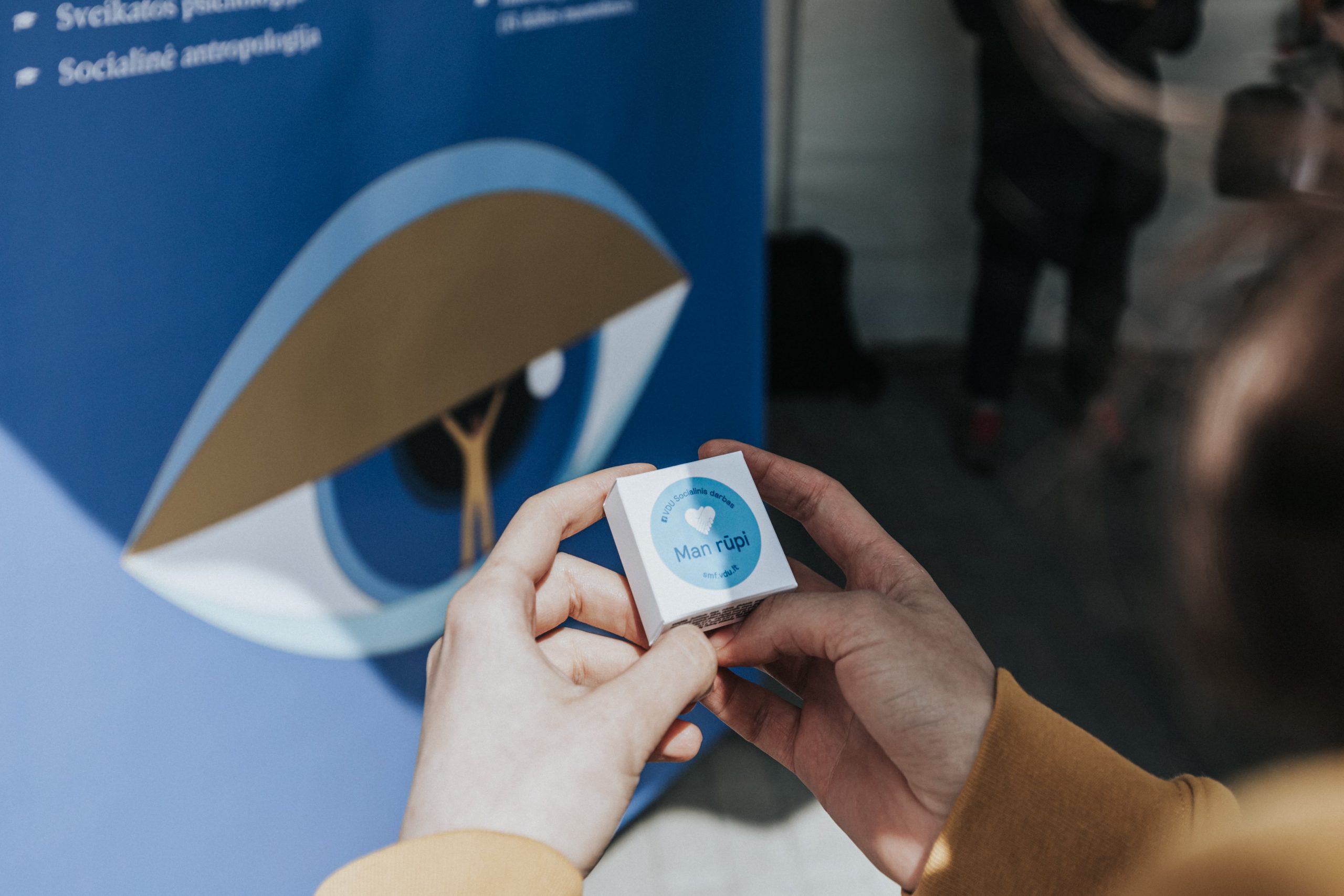
Listening is key
Marius Rišys, who works at the child welfare centre Pastogė, graduated from Vytautas Magnus University with a master’s degree in Social Work. He says the most important skill for people in this field is the ability to listen. “Social work is not just about paperwork, filling in formalities or pointing people in one direction or another. It is first and foremost about listening to people, helping them to deal with the emotions that are weighing them down at the moment, helping them to understand how they got to where they are and that they need help,” he says.
Rišys notes that the ability to listen has been one of the greatest benefits he has gained from his studies. Internationality has been equally beneficial: he had the opportunity to attend lectures by lecturers from the USA, Sweden, and other countries, to interact with foreign students, and to broaden his horizons about phenomena that at first glance appear to be simple, but which in fact have complex and serious causes.
“What we are seeing now is only the result. If we want to understand what happened to a person, why he or she is in trouble, we need to listen to their story and see things from another angle. My studies gave me just that – the ability to listen, consult, and see the bigger picture,” says Rišys, who at the beginning of his work at the Pastogė centre had a very challenging task of working with families at social risk and helping them recover their children and deal with problems such as addiction, violence, and other issues.
“There have been some very successful stories. Sometimes, five years later, clients find you and say, “Thank you for helping me out of my addiction,” but you’ve already forgotten about that case. Such events used to make me really happy,” VMU graduate recalls the brighter side of his work.
He currently works with people who foster children, consulting foster carers and the children they care for, and helping them through the fostering process – he has to act as an emotional mediator and help avoid misunderstandings. Another one of his responsibilities is to provide training for people who are applying to become foster carers. “It’s truly an interesting job because you delve into a person’s life story, their relationship with their environment, their parents, their childhood. Based on this, you have to assess and draw conclusions whether a person will be able to take care of a child and be an adoptive parent,” says an employee of the child welfare centre Pastogė.

Situations need to be responded to quickly
Gerda Laurinavičienė, a graduate of VMU with a bachelor’s and master’s degree in Social Work, currently has a similar responsibility at the State Child Rights Protection and Adoption Service, where she meets with individuals and families expressing their desire to become foster carers or adoptive parents.
“The dynamic nature of the work of the Child Rights Protection Service is what attracted me to this career path. I also chose this work because I am studying for a PhD in Social Work at the University of Lapland and my thesis topic is related to children in the Lithuanian foster care system. The foster care system is interesting to me, and my experience gives me the opportunity to analyse it from different perspectives,” says Laurinavičienė, who graduated from Vytautas Magnus University with bachelor’s and master’s degrees in Social Work.
According to her, her studies at VMU have been rich in every sense – both in terms of the content of the subjects taught and the teachers, who are professionals in their field. “I remember a lot of discussions in which Loyola University Chicago students directly participated, a lot of practical experience that gave me the opportunity to see social work up close, and also collaboration with various institutions. The studies allowed me to develop both as a social work professional and as a person,” says Laurinavičienė, adding that during her studies she broadened her view of social problems and acquired skills that are very useful in her current work.
“My job requires quick reactions to situations, structured and responsible work, constant interest in and analysis of changes in the foster care system, and cooperation with other professionals and colleagues. It also requires empathy, critical thinking, curiosity, and often courage,” the social worker notes.
The only studies of this kind in Lithuania
The first-cycle study programme “Social Work and Psychosocial Counselling” offered at Vytautas Magnus University combines the latest theories and knowledge of social work and other disciplines, as well as counselling methods and practices. It develops a professional and responsible approach to psychosocial support, with the aim of ensuring human rights and critically assessing organisational, legal, political, and economic contexts. According to Assoc. Prof. Rasa Naujanienė, the focus on psychosocial counselling is the greatest strength and uniqueness of this study programme, which is unmatched by any other programme offered in Lithuania.
“Psychosocial counselling is about counselling on interpersonal relationships, crisis situations or events, mourning or loss. It’s also about providing education on opportunities and helping individuals identify their needs, make appropriate decisions, and access available resources,” explains the Head of VMU Department of Social Work.
The updated “Social Work and Psychosocial Counselling” programme includes courses in the field of psychology, focusing on personality development, the foundations of psychology in social work, coaching methods, and law, as well as updated courses related to psychosocial counselling and other areas to strengthen the competences of social work practice. The programme offers the opportunity to undertake up to three internships in public and non-governmental organisations of one’s choice and to develop practical skills through a range of practical courses and group supervision.
Graduates of these studies can be successfully employed in social work and other professional fields. They are able to carry out psychosocial assessments, conduct counselling interviews in a purposeful manner, use motivational interviewing techniques, alternative counselling tools, and more. After graduating and obtaining a bachelor’s degree in Social Sciences, graduates can work as social workers or managers in governmental and non-governmental organisations operating in the fields of social security, health, education, law enforcement, employment, and national defense.
Graduates are qualified to provide psychosocial support and counselling to a wide range of groups, including children, adolescents, young people, families, the elderly, individuals with mental health or addiction problems, migrants, the unemployed, and others. Students can continue their studies in Social Work, Social Anthropology, Integrated Communication, and other second-cycle study programmes in the fields of Social Sciences or Education.
About VMU study programme “Social Work and Psychosocial Counselling” (in Lithuanian)














